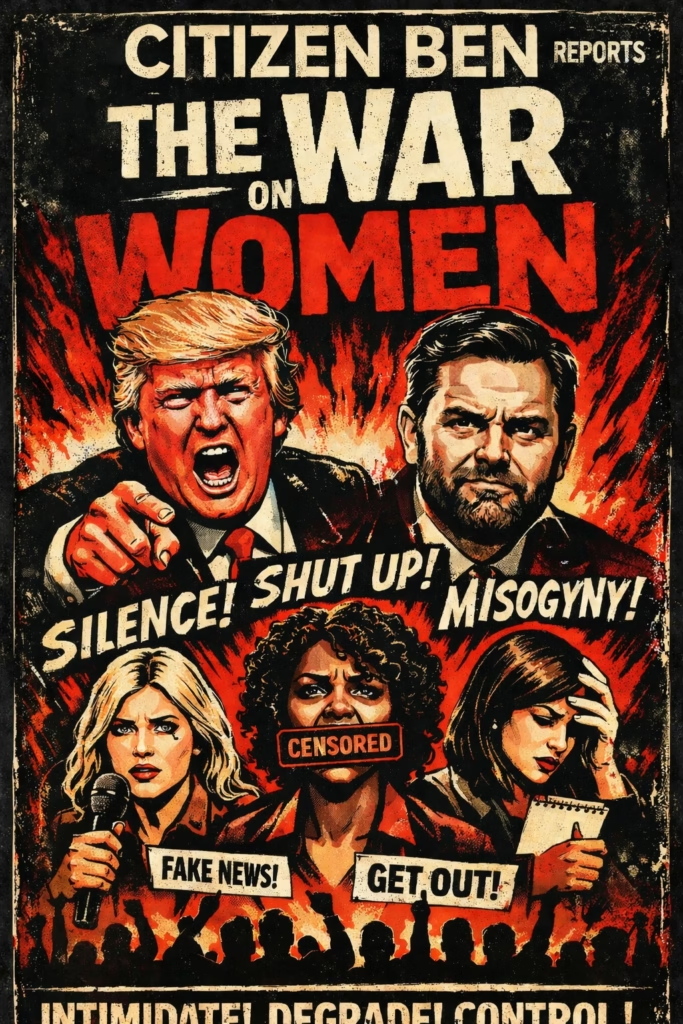Conspiracy Theorist’s Role in National Cyber Security
By Ben Cable (Citizen Ben)
In a move that has sent shockwaves through the national security community, President Donald Trump recently dismissed General Timothy Haugh, the National Security Agency (NSA) director and commander of U.S. Cyber Command, along with his deputy, Wendy Noble.
This abrupt decision reportedly stemmed from the influence of far-right activist and known conspiracy theorist Laura Loomer, raising critical concerns about the integrity of national security decisions and the potential vulnerabilities they may expose.

Photo by Bermix Studio on Unsplash
Behind the Firings
Laura Loomer (31), a figure notorious for propagating unfounded conspiracy theories, including claims that the 9/11 attacks were staged and that various school shootings were fabricated, allegedly played a pivotal role in advocating for the removal of Haugh and Noble. During a meeting with President Trump at Mar-a-Lago, Loomer reportedly labeled these officials “disloyal” and pushed for their dismissal. Despite President Trump’s North Korea, Iran, ublic denial of Loomer’s involvement, the timing and nature of the firings suggest otherwise.
In the second act of Donald J. Trump’s presidency, the American political landscape has shifted further into uncharted territory. Once considered foundational, institutional guardrails now appear to be crumbling. As division deepens at home, vulnerabilities widen abroad, and in the quiet corridors of cyberspace, threats are evolving faster than our defenses.
A Nation Distracted
America is increasingly fractured, politically, socially, and ideologically. Fueled by inflammatory rhetoric, the country’s attention is turned inward. Cultural wars dominate the air waves, and key government agencies have seen an exodus of experts, career officials, and cybersecurity professionals. As the focus turns to consolidating political power and punishing dissent, vigilance against foreign threats is fading.
This internal division is precisely what foreign adversaries like Russia, China, North Korea, and Iran exploit. Their strategy is not always to directly attack but to destabilize from within, to amplify distrust, chaos, and dysfunction. Cyber operations have become the perfect weapon: cheap, deniable, and devastatingly effective.
Cyber Frontlines
America’s critical infrastructure is a digital minefield. The nation’s power grids, water systems, air traffic control networks, financial systems, and communication backbones are all interconnected and increasingly vulnerable. What was once a Cold War fought with missiles is now a shadow war waged through malware and misinformation.
In the Trump administration’s second term, cybersecurity appears to be an afterthought. Key departments, including the Cybersecurity and Infrastructure Security Agency (CISA), have seen leadership turnover and weakened authority. Meanwhile, foreign actors are escalating their cyber intrusions. Ransomware gangs with ties to Russia test our resilience by targeting hospitals and local governments. Chinese state hackers quietly embed malware in supply chains and infrastructure, lying dormant until activation.
The 2020 SolarWinds hack and the Colonial Pipeline attack were just previews. Under an administration that often downplays or dismisses foreign cyber threats, particularly anything attributed to Russia, the next major cyberattack may not only be more sophisticated but also met with silence or deflection rather than strategy and retaliation.
Guardrails Removed
Under previous administrations, Republican and Democrat alike, there were at least shared norms and frameworks around national security. The current approach has rejected the traditional playbook. Experts are replaced with loyalists. Intelligence is filtered through political narratives. International alliances, once the backbone of collective cyber defense, are strained or ignored.
Guardrails are not just policy mechanisms, they are the norms, the protocols, the quiet safeguards that keep national security insulated from politics. Without them, everything becomes fair game. When decisions about threats from Russia or China are made based on optics or personal relationships rather than intelligence, the consequences can be catastrophic.
Implications for National Security
The sudden ousting of seasoned leaders like Haugh and Noble has elicited bipartisan concern. Representative Don Bacon (R-Neb.), a member of the Armed Services Committee and former Air Force brigadier general, described the decision as “heartbreaking,” emphasizing that such actions could set back national security efforts and embolden adversaries. Bacon further noted that these dismissals might prompt congressional oversight to investigate the matter.
Democratic leaders have echoed these apprehensions. Senators Mark Warner and Jack Reed, along with Representative Jim Himes, warned that removing experienced, nonpartisan officials from critical positions weakens the nation’s defenses, especially amid escalating cyber threats from foreign adversaries.
Connection to Project 2025 and Foreign Interests
The involvement of Loomer in high-level national security decisions raises pressing questions about her affiliations and motivations. Project 2025, a policy framework developed by the Heritage Foundation, proposes a significant restructuring of cybersecurity agencies, including the potential dismantling of the Cybersecurity and Infrastructure Security Agency (CISA). While Loomer’s direct connection to Project 2025 remains unclear, her influence in the recent NSA leadership changes aligns with the project’s broader agenda of reshaping national security institutions.
Furthermore, given the current geopolitical landscape, understanding any potential ties between Loomer and foreign entities such as Russia, China, North Korea, or Iran is crucial. While no concrete evidence has yet surfaced linking her to these nations, the mere possibility underscores the need for thorough vetting of individuals who hold sway over national security decisions.
Motivations and the Path Forward
Loomer’s motivations appear rooted in her ideological stance, Project 2025, and her commitment to promoting a specific political narrative. However, allowing individuals with a history of disseminating misinformation to influence critical appointments poses a significant risk to the integrity of national security operations.
As the United States navigates an increasingly complex cyber threat environment, national security decisions must be guided by expertise and insulated from unvetted external influences. The recent NSA leadership changes serve as a stark reminder of the potential consequences when this principle is compromised.
The Stakes
Imagine a coordinated cyber assault on American infrastructure: blackouts across the Northeast, banking systems frozen, water supplies shut down, GPS systems hijacked, air traffic brought to a halt. It’s not science fiction, it’s a scenario that intelligence officials have warned about for years. The question isn’t if, but when.
What prevents such a calamity is constant vigilance, robust international cooperation, trusted institutions, and leaders who prioritize facts over factions. As the Trump administration doubles down on political loyalty and disinformation, the window for foreign adversaries to strike, or simply destabilize, grows wider.
The dismissal of General Haugh and Deputy Noble, reportedly at the behest of a conspiracy theorist, highlights a troubling intersection of fringe ideologies and national security. This development not only raises questions about the current administration’s logic and decision-making processes but also underscores the urgent need for safeguarding the nation’s security apparatus from undue and potentially harmful influences.




